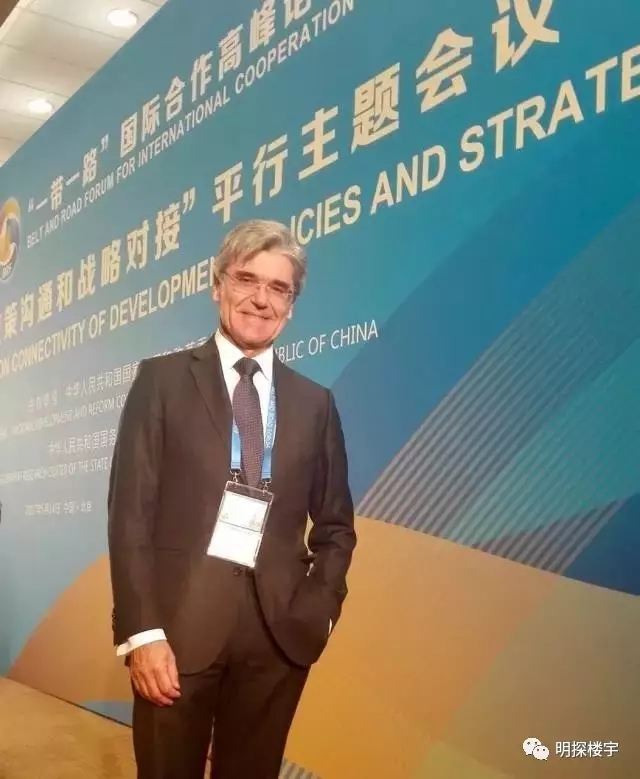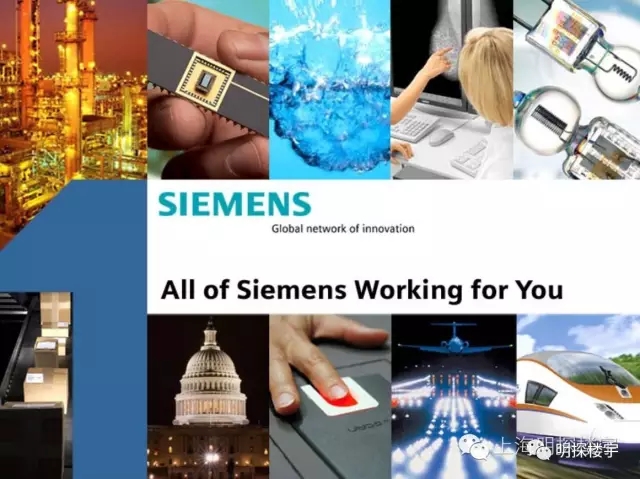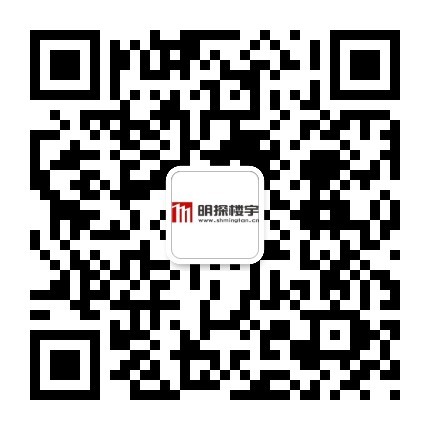郵編:200072
電話:021-31268119(總機)
E-mail:sales@shmingtai.com
西門子股份公司總裁兼CEO凱颯在“一帶一路”
國際合作高峰論壇上的講話
Speech on Belt and Road Forum for International Cooperation
JoeKaeser, President and CEO of Siemens AG

我很榮幸應邀在這次論壇上發(fā)言。隨著“一帶一路”建設的不斷深化,中國正走向世界,并積極倡導國際合作。不論對于中國還是世界,“一帶一路”倡議都意味著巨大的機遇,并且已經(jīng)結出累累碩果。
I was glad to accept the invitation to speak at this conference because with the Belt and Road Initiative, China is reaching out to the world and promoting international cooperation. Belt and Road is a huge opportunity for China and the world and much has already been accomplished.
中國國家主席習近平在全國人民代表大會上曾表示: “中國開放的大門不會關上。”
President Xi Jinping, at the National People's Congress, you said, quote: “The door of China’s opening up will not close.”
這一恰如其分的表述來得正合時宜——因為當前全球貿(mào)易保護主義抬頭,總有人試圖對自由貿(mào)易關起大門。他們以為如此一來便可保護本國產(chǎn)業(yè),防止國民失業(yè)。
That’s the right signal at the right time – because today we see a resurgence of protectionism all over the world. There are those who want to close the door on trade. They assume that doing so will protect local industry and prevent local jobs from being lost.?
但歷史證明并非如此。貿(mào)易幫助成千上萬的中國人擺脫貧困,幫助全世界無數(shù)人民改善生活。縱觀歷史,但凡那些鼓勵知識、商品、服務自由交換的國家都繁榮昌盛。如果沒有自由貿(mào)易,怎么會有我們的今天?而明天我們又將何去何從?我們只有打開貿(mào)易的大門,通力合作,才能共同應對諸如氣候變化、移民潮、全球化以及數(shù)字化帶來的全球挑戰(zhàn)。
But history refutes that assumption. Trade has helped lift millions of people out of poverty in China. It has improved the lives of millions of people all over the world. And throughout history, countries that have embraced the free exchange of knowledge, goods, and services have thrived. Where would we be today without trade? And where will we be tomorrow? We will only be able to meet global challenges such as climate change, migration, globalization, and digitalization if we cooperate and keep the door open for trade.?
這就是為什么我們政商界的領導者都要努力確保市場不但實現(xiàn)自由,還要保證公平性和包容性。那么像西門子這樣的跨國企業(yè)如何幫助實現(xiàn)這一目標呢?
That's why we as leaders, whether in business or in politics, must make sure that trade is not only free, but also fair and inclusive. How can global companies like Siemens support that?
這就需要我們以負責、相互尊重、可持續(xù)的方式為本土創(chuàng)造價值。
By creating value locally – in a responsible, respectful, and sustainable way.
這意味著通過投資本土制造業(yè)、從本土供應商采購產(chǎn)品和服務、提升本土創(chuàng)新能力,最終推動本土產(chǎn)業(yè)的轉型升級。
That involves carefully cultivating local industry by investing in local manufacturing, by buying goods and services from local suppliers, and by promoting local innovation.

在這方面,“一帶一路”倡議就是一個很好的例證。自2013年這一倡議提出以來,中國企業(yè)已經(jīng)在沿線20多個國家建立了56個經(jīng)貿(mào)合作區(qū),累計投資超過185億美元,為東道國增加了11億美元的稅收和18萬個就業(yè)機會。
The Belt and Road Initiative is an example of that. Since it was launched in 2013, Chinese enterprises have invested a total of about US$18.5 billion, generated US$1.1 billion in tax, and created 180,000 jobs in more than 20 host countries within 56 trade cooperation zones.
目前,西門子在中國擁有20個研發(fā)中心,超過4500名研發(fā)人員和工程師。我們立足中國開展研發(fā),并服務于中國和全世界,這正是我們對中國自主創(chuàng)新的貢獻所在。
Siemens currently operates 20 R&D hubs in China and employs more than 4,500 R&D experts and engineers. Our contribution to “indigenous innovation” is to do innovation in China for China and the world.
本土企業(yè)實現(xiàn)成長,能源和基礎設施必不可少。西門子與中國的EPC企業(yè)攜手,為他們提供支持。自2013年“一帶一路”倡議提出以來,截至2016年,中國企業(yè)已經(jīng)在60個國家簽訂了約4000份EPC合同。
For local industry to thrive, energy and infrastructure are needed. Chinese Engineering Procurement and Construction companies (EPCs) and Siemens are meeting that need. Since the launch of Belt and Road in 2013, Chinese companies have signed about 4,000 foreign EPC contracts in 60 countries by 2016.
然而,中國的EPC企業(yè)還面臨很多問題——例如需要滿足國際項目管理的標準、遵守當?shù)胤煞ㄒ?guī)、克服語言障礙以及項目融資等問題。
However, Chinese EPCs face a number of obstacles – such as meeting international project management standards, complying with local regulations, overcoming language barriers, and financing projects.
西門子擁有遍及全球的業(yè)務網(wǎng)絡以及在電氣化、自動化、數(shù)字化領域獨一無二的業(yè)務組合,我們可以為中國的EPC企業(yè)提供更強有力的支持。我們提供可持續(xù)的能源系統(tǒng)和智能基礎設施。我們可以通過提供產(chǎn)權投資、貸款、出口信貸和咨詢服務等方式幫助中國的EPC企業(yè)降低風險并為項目提供融資服務。我們在全球各地開展本地創(chuàng)新——同樣也為在“一帶一路”沿線國家開拓業(yè)務的中國企業(yè)提供創(chuàng)新支持。
With its global footprint and unmatched portfolio in the areas of electrification, automation, and digitalization, Siemens can support Chinese EPCs like no other company. We provide sustainable energy systems and intelligent infrastructure. We can help EPCs reduce risk and finance projects, for example, by providing equity investment, loans, export credit, and consulting services. We innovate locally all over the world – and we can do that for Chinese companies operating in Belt and Road countries as well.
為本地創(chuàng)造價值意味著幫助一個國家實現(xiàn)其環(huán)保目標。中國政府的目標是到2030年單位GDP二氧化碳排放比 2005年下降60%-65%。
Creating value locally means helping a country meet its environmental goals. The Chinese government aims to lower the carbon intensity of GDP by 60 to 65 percent relative to 2005 by the year 2030.
西門子可以協(xié)助中國實現(xiàn)這一宏偉目標。2016年,我們的環(huán)保業(yè)務組合幫助客戶和業(yè)務伙伴減少二氧化碳排放量 5.21億噸。這相當于德國每年二氧化碳排放總量的60%左右。
Siemens can help China meet this ambitious goal. In 2016, our Environmental Portfolio enabled customers and business partners to reduce their CO2 emissions by 521 million metric tons. That’s equivalent to about 60 percent of the annual CO2 emissions of Germany.
為本地創(chuàng)造價值也意味著公司自身減少碳足跡。西門子是全球第一個承諾到2030年實現(xiàn)碳中和的大型工業(yè)企業(yè)。
Creating value locally also means reducing the local carbon footprint of your company. Siemens was the first major industrial company to commit to being carbon neutral by 2030.
為本地創(chuàng)造價值還意味著提供就業(yè)機會、培訓和教育。西門子在中國有3.1萬名員工,在全球每年投入逾5億歐元用于員工培訓和教育。
Creating value locally involves providing jobs, training, and education. Siemens employs 31,000 people in China. And worldwide, we spend over €500 million per year on training and educating employees.
我非常驕傲地告訴各位,作為對西門子在中國培訓和教育領域所作出努力的認可,我們在2016年榮獲了“CSR中國教育獎”。
I’m proud to say that in recognition of our training and education efforts in China, we received the Best Sustainability Award of the Corporate Social Responsibility China Education Awards in 2016.
我們今天在座的每一位都可以貢獻一己之力,以負責、尊重和可持續(xù)的方式在本地創(chuàng)造價值,從而實現(xiàn)全球經(jīng)濟更可持續(xù)和更加包容。也許——只是也許——這將有助于全球各地貿(mào)易的大門持續(xù)敞開。
All of us here today can do our part to create value locally in a responsible, respectful, and sustainable way. That’s how we can make the global economy more sustainable and more inclusive. And maybe – just maybe – that will keep doors open for trade all over the world.
— 專業(yè)、專注西門子消防火災報警設備供應商!
版權所有,并保留所有權利。
上海市靜安區(qū)永和路118弄43號904
Tel: 021-31268119
E-mail: sales@shmingtai.com
ICP備案證書號:滬ICP備12006273號




